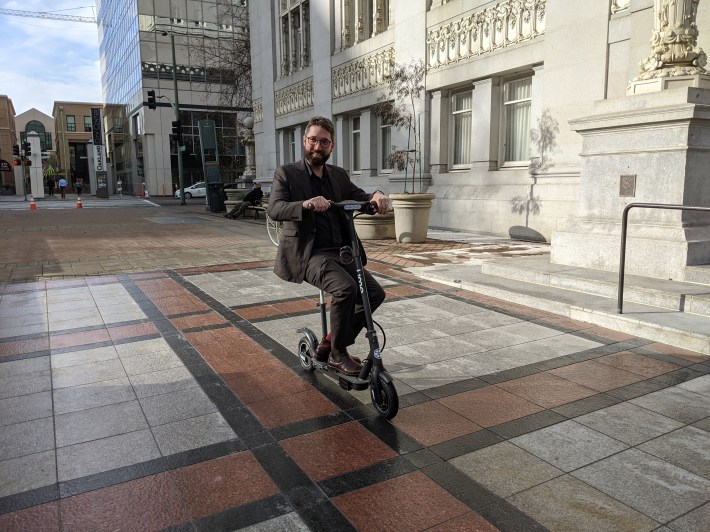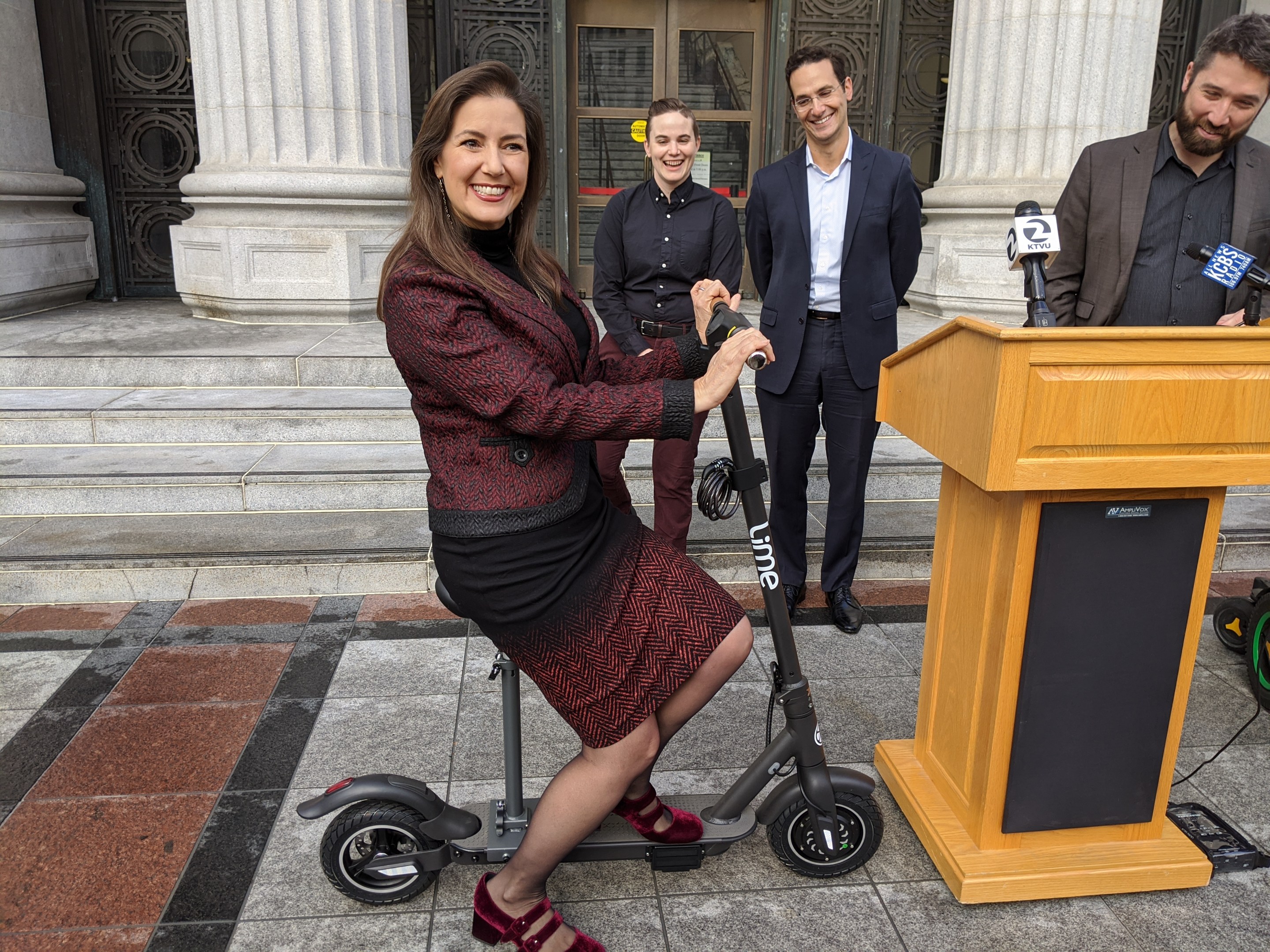It's now possible for seniors and other people with limited balance to use scooters to get around Oakland. "There will be 45 scooters available" with adjustable seats, as pictured above, explained E.V. Ellington, manager for Lime for the Bay Area, during a launch event at Oakland City Hall Wednesday morning. Users with disabilities will be able to order one using the Lime app. A scooter will then be delivered to their location, and they can use it for 24 hours. "Everyone should have access to this in the city," said Oakland Mayor Libby Schaaf, motioning to the scooter next to the podium, as pictured in the lead image.
From the release from Oakland City Council president Rebecca Kaplan:
The pilot features an e-scooter intended for riders who are not comfortable or unable to stand for a long time and/or have limited capacity for walking. This new accessible micro-mobility for Oakland residents with disabilities to travel and commute to work/home, run errands, and make their lives more convenient as it increases their transportation options.
A scooter with a seat post clamped to it may not seem like a big deal, but Lime officials said this is just the first step--and that they're working with people who build bikes for the disabled on additional designs to accommodate people with a variety of physical limitations. A scooter with a seat is also seen as a way for people who just may be a bit less confident in their abilities to try scootering.

Streetsblog (and Oakland spokesperson Sean Maher, seen above) took the scooter for a spin. It's certainly easier to balance from a seated position than standing and might actually be a preferable design, even for people who regularly ride conventional kick scooters. It's also a way to comfortably use scooters for longer trips, said Lime officials.
The cost of using the adaptive e-scooter will be $32 for a daylong rental, with a fifty percent discount for registered low-income users. For people who don't have a credit card, Lime will accept cash at time of delivery. The scooters have a range of nearly 12 miles and a top speed of 15 mph. They also have wider handlebars than a typical Lime scooter.
Providing adaptive scooters was part of the criteria Oakland set up when it began regulating scooters under its permit program, launched in July of 2019. According to city officials, this as the first time in the U.S. a city required shared electric scooter companies to provide access to people with disabilities.
Kaplan and others boasted about Oakland's original decision to embrace micro-mobility to provide new options for getting around and developing regulations on the fly, to strike a balance between the needs of pedestrians and scooter users. "We don’t have to choose between a ban and chaos - we can have a permitted scooter system and include regulations to prevent negative impacts and ensure public access. Today’s new expanded accessible scooters are another important piece of progress to help ensure these mobility options can provide access for all in our community," wrote Kaplan in a statement about the new scooters.
Ellington, meanwhile, said they will start rolling out 75 disability scooters for San Francisco next week.
What do you think? Do you prefer seated scooters? What other designs for so-called micro-mobility do you see as a way to open up the system to more users? Post your thoughts below.






